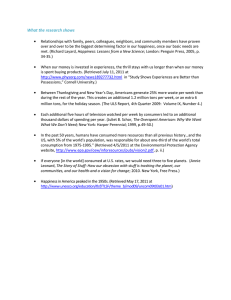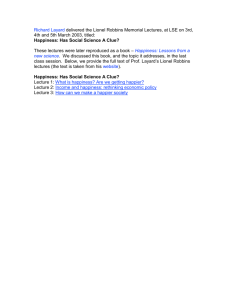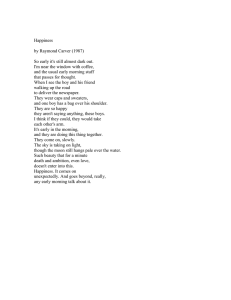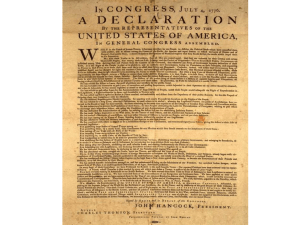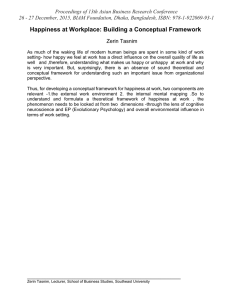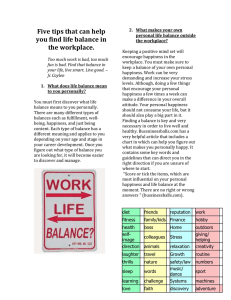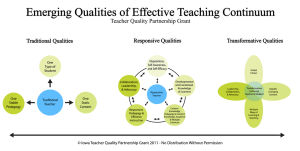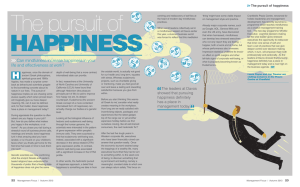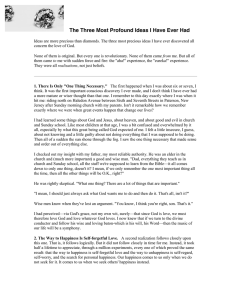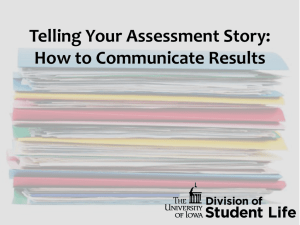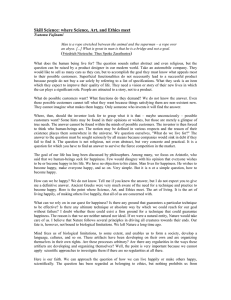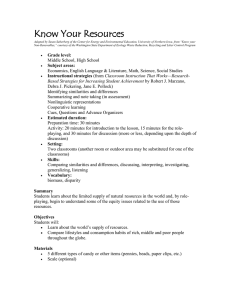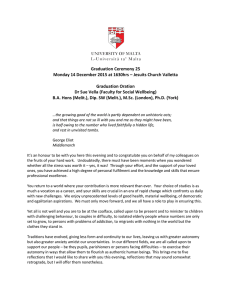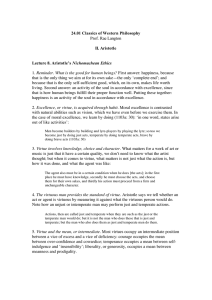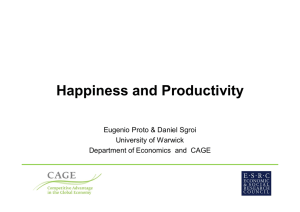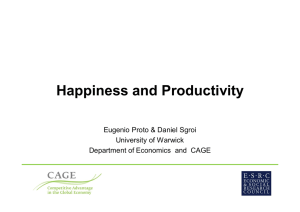What the research shows PRACTICAL WAYS TO CREATE MEANING
advertisement
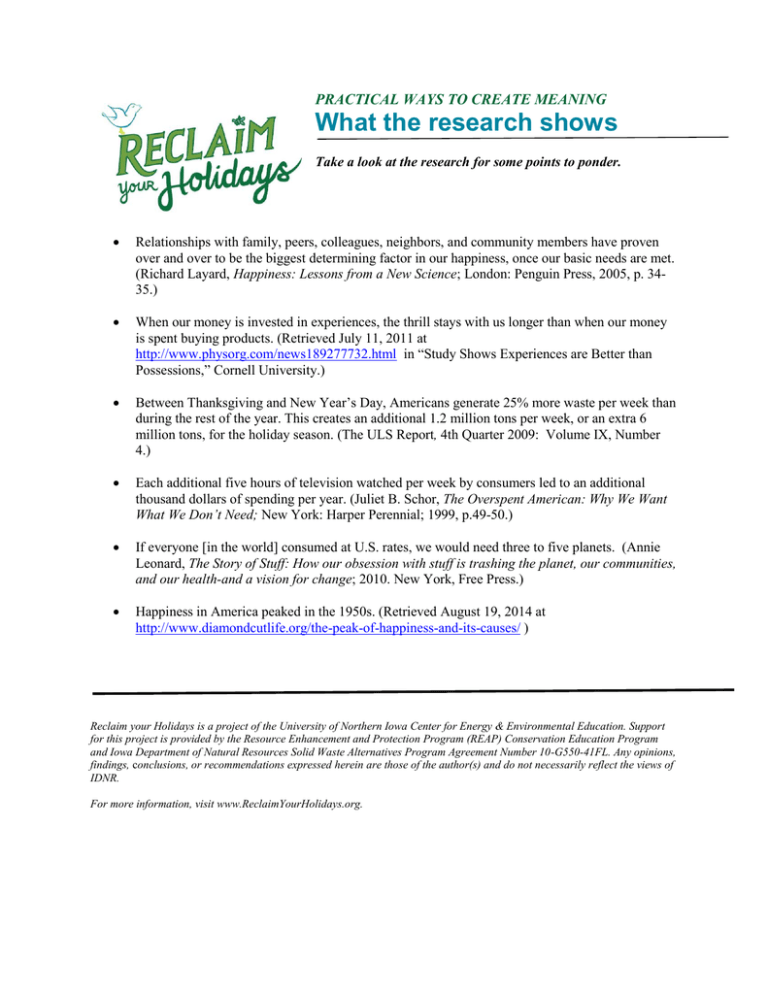
PRACTICAL WAYS TO CREATE MEANING What the research shows Take a look at the research for some points to ponder. Relationships with family, peers, colleagues, neighbors, and community members have proven over and over to be the biggest determining factor in our happiness, once our basic needs are met. (Richard Layard, Happiness: Lessons from a New Science; London: Penguin Press, 2005, p. 3435.) When our money is invested in experiences, the thrill stays with us longer than when our money is spent buying products. (Retrieved July 11, 2011 at http://www.physorg.com/news189277732.html in “Study Shows Experiences are Better than Possessions,” Cornell University.) Between Thanksgiving and New Year’s Day, Americans generate 25% more waste per week than during the rest of the year. This creates an additional 1.2 million tons per week, or an extra 6 million tons, for the holiday season. (The ULS Report, 4th Quarter 2009: Volume IX, Number 4.) Each additional five hours of television watched per week by consumers led to an additional thousand dollars of spending per year. (Juliet B. Schor, The Overspent American: Why We Want What We Don’t Need; New York: Harper Perennial; 1999, p.49-50.) If everyone [in the world] consumed at U.S. rates, we would need three to five planets. (Annie Leonard, The Story of Stuff: How our obsession with stuff is trashing the planet, our communities, and our health-and a vision for change; 2010. New York, Free Press.) Happiness in America peaked in the 1950s. (Retrieved August 19, 2014 at http://www.diamondcutlife.org/the-peak-of-happiness-and-its-causes/ ) Reclaim your Holidays is a project of the University of Northern Iowa Center for Energy & Environmental Education. Support for this project is provided by the Resource Enhancement and Protection Program (REAP) Conservation Education Program and Iowa Department of Natural Resources Solid Waste Alternatives Program Agreement Number 10-G550-41FL. Any opinions, findings, conclusions, or recommendations expressed herein are those of the author(s) and do not necessarily reflect the views of IDNR. For more information, visit www.ReclaimYourHolidays.org.
